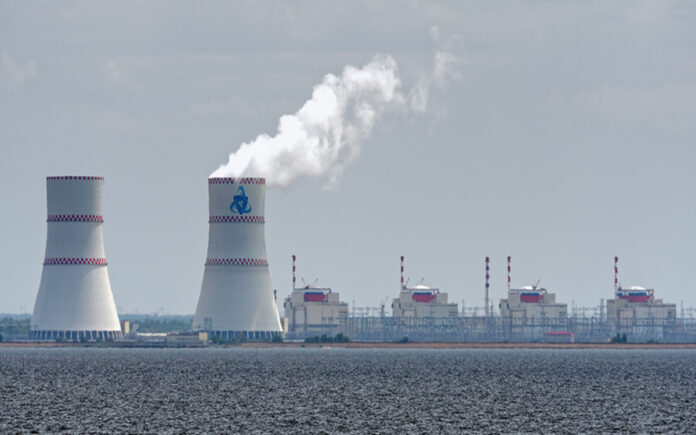Kyiv: Ukraine’s parliament has approved the purchase of two Russian-made nuclear reactors from Bulgaria for the expansion of the Khmelnytskyi Nuclear Power Plant, lawmaker Yaroslav Zhelezniak announced on February 11.
The Kyiv Independent reported on the development, highlighting its significance amid Ukraine’s ongoing energy crisis.
President Volodymyr Zelensky urged lawmakers to support the acquisition, describing it as “key to energy independence.” Bulgaria has offered to sell two unused VVER-1000 reactors—originally intended for its Belene Nuclear Power Plant—along with associated equipment. The reactors, which have remained in storage for 15 years, are designated for units 3 and 4 of the Khmelnytskyi plant.
The deal comes as Ukraine struggles to maintain a stable power supply due to sustained Russian missile and drone attacks targeting its energy infrastructure. However, the purchase has sparked controversy, with some lawmakers arguing that the reactors are outdated and overpriced. The Ukrainian parliament initially faced challenges in securing approval, prompting Bulgaria to extend the deadline for finalizing the agreement until March.
Lawmaker Andrii Zhupanyn confirmed that the price for the two reactors has been set at $600 million.
Nuclear Power: A Pillar of Ukraine’s Energy Strategy
Nuclear energy remains a crucial component of Ukraine’s power grid, supplying over half of the country’s electricity needs. Russian attacks have significantly damaged Ukraine’s thermal and hydroelectric power stations, leading to widespread emergency shutdowns.
Also Read | North Korea Expands Military Support to Russia with 200 Artillery Units
The expansion of the Khmelnytskyi Nuclear Power Plant is seen as a critical measure to offset energy deficits, particularly after the loss of the Zaporizhzhia Nuclear Power Plant, which remains under Russian occupation. The newly acquired reactors are expected to enhance Ukraine’s long-term energy security and reduce dependence on fossil fuel-based power generation.
Political Tensions and Corruption Allegations
The approval of the reactor deal comes amid growing political pressure on Energy Minister Herman Halushchenko, a strong advocate for the purchase. Opposition lawmakers have accused Halushchenko of corruption within the energy sector, failing to protect critical infrastructure, and misleading the public about the country’s energy resilience.
Calls for his dismissal are gaining momentum, adding further controversy to the already contentious agreement.



